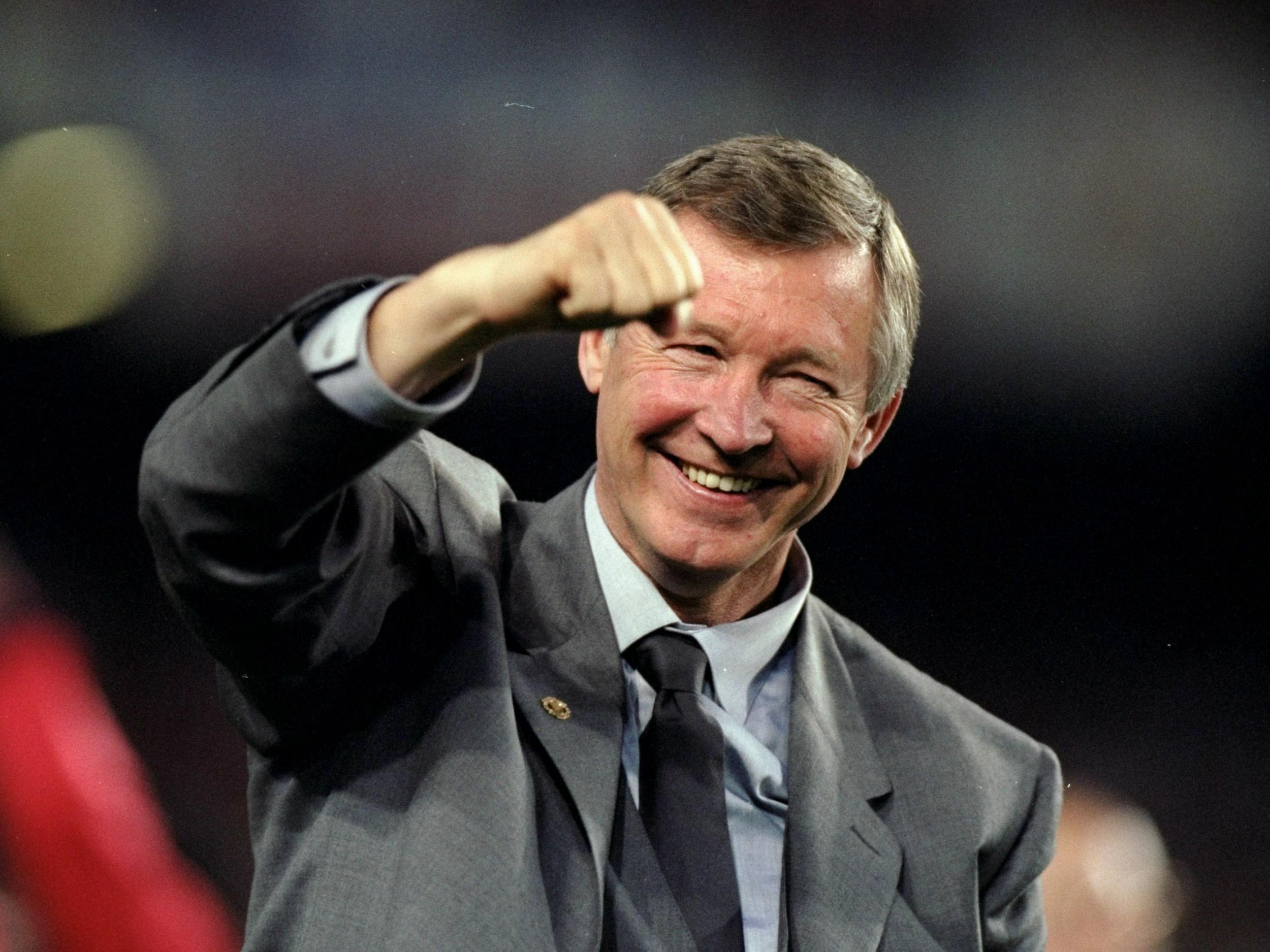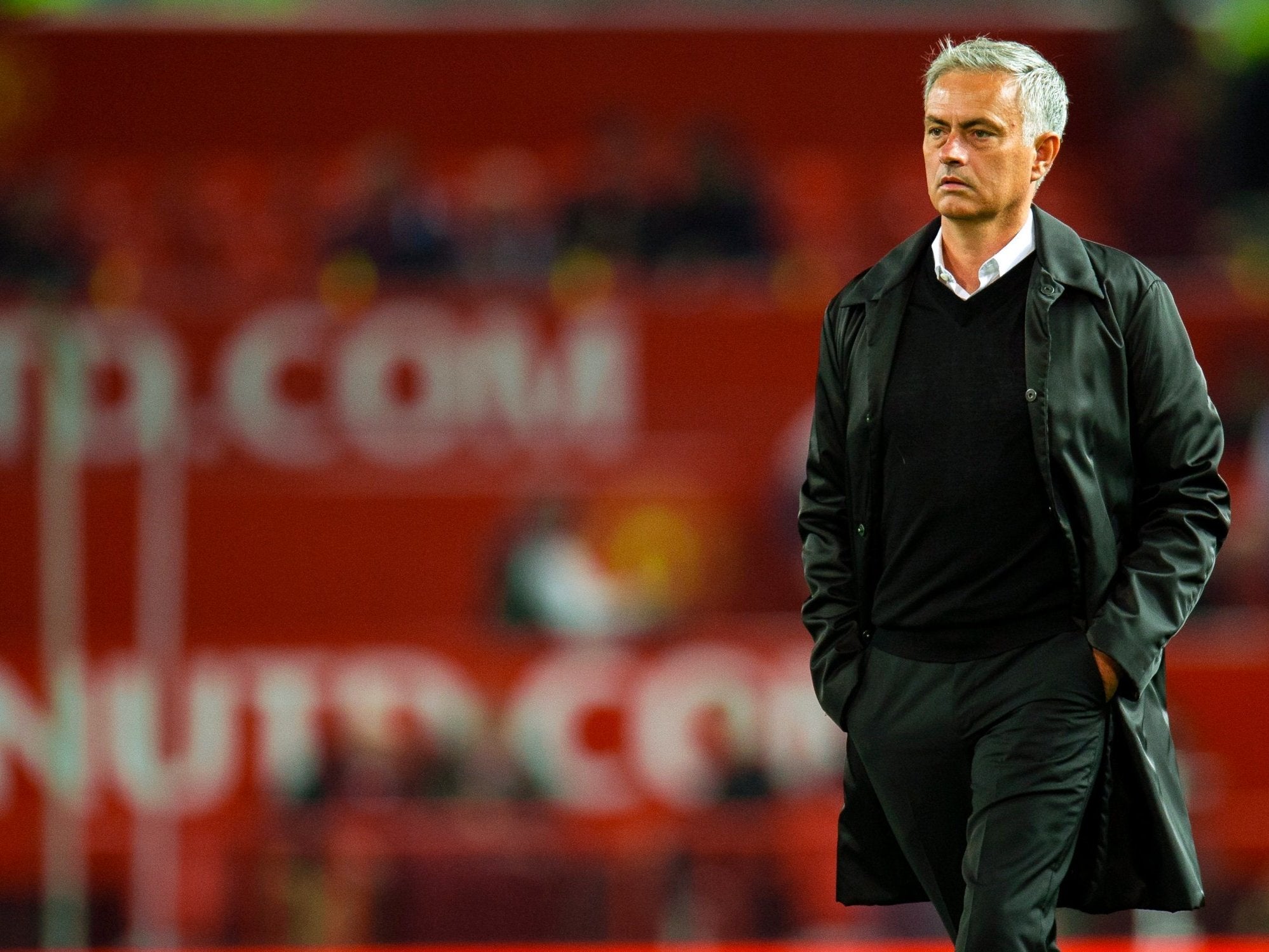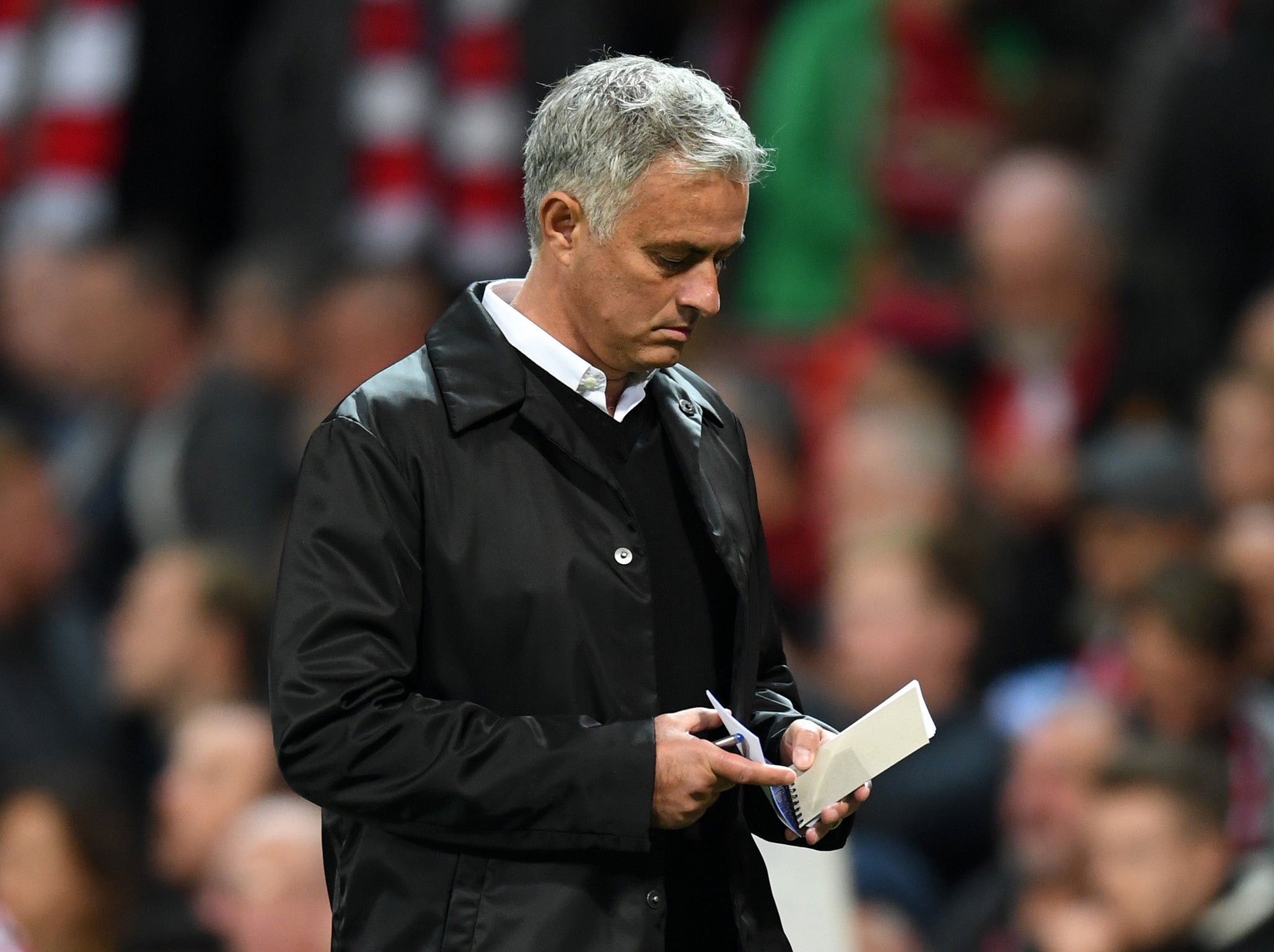Jose Mourinho can survive at Manchester United but must break the habit of a lifetime
The brutal reality is that Mourinho has never recovered from any kind of proper crisis, any prolonged spell of bad form. In this sense, Sir Alex Ferguson could teach the Portuguese a lot

Your support helps us to tell the story
From reproductive rights to climate change to Big Tech, The Independent is on the ground when the story is developing. Whether it's investigating the financials of Elon Musk's pro-Trump PAC or producing our latest documentary, 'The A Word', which shines a light on the American women fighting for reproductive rights, we know how important it is to parse out the facts from the messaging.
At such a critical moment in US history, we need reporters on the ground. Your donation allows us to keep sending journalists to speak to both sides of the story.
The Independent is trusted by Americans across the entire political spectrum. And unlike many other quality news outlets, we choose not to lock Americans out of our reporting and analysis with paywalls. We believe quality journalism should be available to everyone, paid for by those who can afford it.
Your support makes all the difference.The relationship between Sir Alex Ferguson and Jose Mourinho has never been as warm as made out, but this is one occasion when the current Manchester United manager could really do with his grand predecessor’s wisdom and experience.
There is genuinely something Ferguson can teach the younger man, even if so many of Mourinho’s problems come from the feeling he knows best.
The Portuguese doesn’t, however, have any idea how to handle situations like this.
The brutal reality is that Mourinho has never recovered from any kind of proper crisis, any prolonged spell of bad form. It has always just led to the end game. He has never shown he has the flexibility or nuance to actually come out of a negative period on the other side.
That was far from the case with Ferguson. As with the genuine sporting legends like Muhammad Ali, part of his greatness – a huge part of the narrative of his career – was how he responded to failure.
And he suffered spells a lot worse than this.
While Ferguson often spoken about his depressed moods after defeats like the 5-1 at Manchester City in 1989, and on so many occasions in the four years before he won that first trophy at Old Trafford, what is really instructive is the responses to the failures that came after success.
Take that week in the autumn of 1996. Mourinho’s United may have just conceded seven goals in the opening three games, making it the first time the club has done so since 1969, but Ferguson’s 1996 side conceded 11 in two games – 5-0 to Newcastle United, 6-3 to Southampton. There then followed a 2-1 defeat to Chelsea at home.
It was some way to “celebrate” Ferguson’s 10th anniversary, a spell where he had become infamous as an intimidating figure who so often detonated. That, however, was always a caricature.
Ferguson was never the regularly-erupting volcano so many presumed. There was so much more flexibility to him, and he was really the master of psychology that Mourinho thinks he is.
Ferguson could have tried to fire his United sides out of a crisis through sheer fury, but he did not. He gathered them together and assertively told them “it stops now”, before seeking to restore a confidence, and steadily build them back up. There was a definitiveness to it, and a deftness.

This is something Mourinho needs to learn, because he has shown no capacity for it so far.
When things started to go wrong at Chelsea and Real Madrid, his responses have generally fallen into two styles.
He has occasionally gone apoplectic, like when he accusingly asked the Chelsea players in 2015-16: “Are you trying to kill me?”
More often than not, though, it has been an icy cold silence. That was what the Chelsea players particularly became used to in that calamitous campaign.
Such an approach served to make clear his disappointment in them, but did little to remedy the issue at hand.
It just increased the tension, making players more fearful of errors and thereby more prone to them, ultimately creating a tentative team. That meant that, even though they started some games well and general performances were often good, they struggled to recover from any setback. There just wasn’t the same belief. Something was broken.

Sound familiar?
So, Mourinho must now really do what is unfamiliar, what may not come easily to him.
He must take a more easy-going approach with a squad he has been so hardline with.
The irony is that, amid the bizarre face-saving rambles of his post-match media, there was merit to some of what Mourinho said.
There was something to build on in the performance. There was a successful press, and more of an intensity.
But then there’s another question connected to Mourinho’s core inflexibility and his unwillingness to adapt.

Since United conceded three goals, two of which came on the break, because of a defence that he clearly has no confidence in, will he just revert to a more reactive approach from now on?
And what of the attackers? It is remarkable that, in a top-six match where all of Anthony Martial, Juan Mata, Alexis Sanchez and Marcus Rashford were on the bench, Mourinho only brought on one of them and picked Marouane Fellaini over the rest.
What’s more, as promising as some of the first half was, it was somewhat undercut by how tentative so much of the second half was. There often seemed a trepidation about getting on the ball, with so many backpasses to David De Gea.
That’s not all down to Mourinho, since there was a passiveness about a supposedly newly ebullient Paul Pogba. There was no bravery to the captain’s performance.
But then that just reflects the team.
The club do not want to sack Mourinho, and want to give him the opportunity to turn it around. It just might require an about-turn in his thinking.
Join our commenting forum
Join thought-provoking conversations, follow other Independent readers and see their replies
Comments